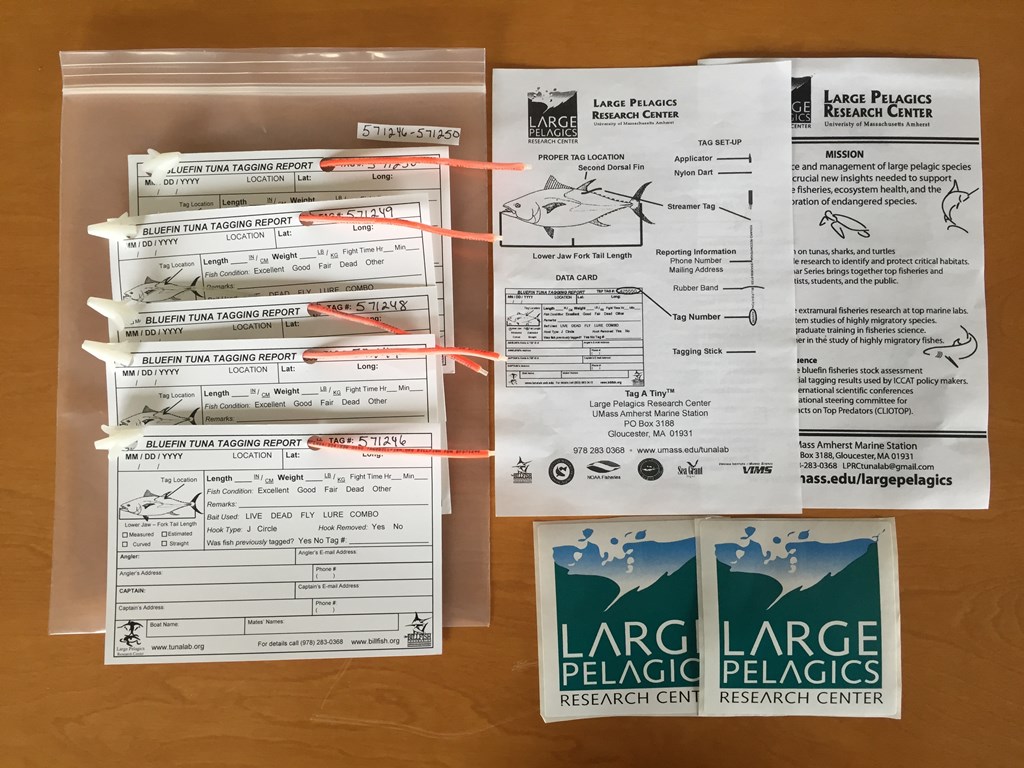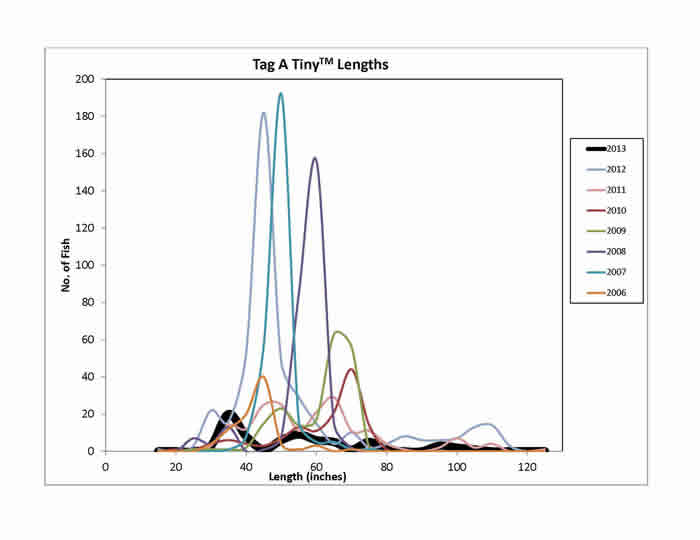Tag a Tuna
Scroll down to learn about the science used to understand Bluefin Tuna
Scroll down to learn about the science used to understand Bluefin Tuna

The Large Pelagics Research Center, in partnership with NMFS and ICCAT, is beginning an Atlantic-wide scientific conventional bluefin tagging program. Under this Grande Bluefin Tuna Year Program (GBYP), ICCAT researchers aim to deploy 15,000 tags in the eastern Atlantic over 3 years and LPRC researchers aim to deploy 4,000 tags in the western Atlantic over 2 years. All tags are to be deployed on 1-3 year old bluefin. This study is aimed at determining more accurate estimates of mortality and east/west mixing rates. For more information on the tags and studies done on Bluefin tuna please visit: http://www.tunalab.org

Bluefin tuna tagging studies have shown that Tuna’s travel great distances, including crossing the Atlantic Ocean at young ages and returning to their two known spawning locations (the Mediterranean Sea and the Gulf of Mexico).
Recently studies have shown that some years over 50% of young tunas on the eastern side of the Atlantic were making the voyage over to the West.
Advanced testing has also allowed scientist to use biological markers from fish tissues, including DNA, chemical isotope signatures, and pesticide levels to understand where the fish has resided.
The population size of the Atlantic bluefin tuna is actually unknown, While it is probable that the species has been overfished for years, the actual population is unknown and has become controversial. In 2010, the Center for Biological
Diversity requested that Altantic bluefin tuna be listed as an endangered species. Many scientist believe this data to be at least somewhat exaggerated and the species is not in such trouble. Since 1993, Dr. Molly Lutcavage has
been working with other scientists and tuna industry members to develop fishery-independent approaches for determining abundance of bluefin tuna.
More information on the Atlantic bluefin tuna can be found at http://www.tunalab.org/bluefin_tuna.htm